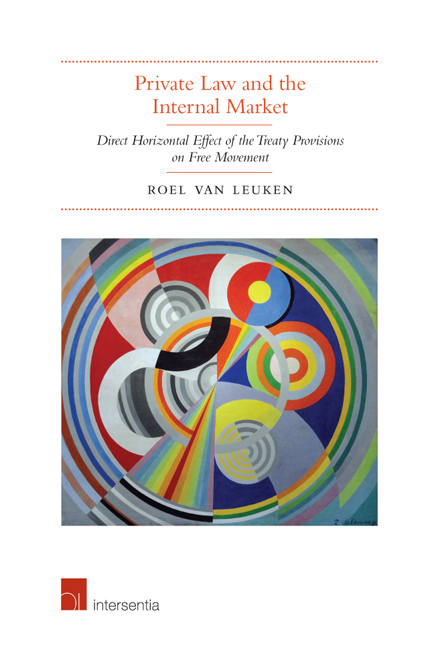 Private Law and the Internal Market
Private Law and the Internal Market Chapter 1 - Introduction
Published online by Cambridge University Press: 27 September 2018
Summary
‘Dernys ready!’: so the loud-speakers at the Olympic Stadium in Amsterdam would bellow, back in the twentieth century. Immediately, one could feel the public excitement as the motor-paced cycling race was about to begin. On the concrete racetrack, cyclists made ready to follow behind the motorcycles ridden by (stout) men in black leathers: the pacers. In their slipstream, cyclists could reach speeds of over 40 miles an hour. ‘A skilled pacer has an instinct for racing, composure and patience. He leads, the cyclist indicates whether he has to go faster or slower’, explained Bruno Walrave, who in his professional career piloted no fewer than 15 cyclists to the world title in motor-paced cycling. Another of the world's best pacers was Norbert Koch, who died in 2010. Ten cyclists won a world championship behind his motorcycle. In addition to their individual successes Walrave and Koch also won a joint victory. In court, that is to say, where they relied on the European Treaty provisions of (currently) Articles 45 and 56 TFEU on freedom of movement for workers and freedom to provide and receive services to dispute the validity of a rule of the international cycling union (Union Cycliste Internationale : UCI) that required cyclist and pacer to have the same nationality. The Dutchmen's argument was original and progressive, as in those days it was generally assumed that the free movement provisions, including those mentioned above, were binding on the Member States only. Walrave and Koch, however, found the Court of Justice in Luxembourg on their side. In its judgment of 12 December 1974 the Court ruled that the prohibitions on discrimination laid down in Articles 45 and 56 TFEU also applied to ‘collective regulations’ of individuals, with the result that the rules of the international cycling union (a private body) could be reviewed against these treaty provisions.
- Type
- Chapter
- Information
- Private Law and the Internal MarketDirect Horizontal Effect of the Treaty Provisions on Free Movement, pp. 1 - 8Publisher: IntersentiaPrint publication year: 2017


